Our Story
Founded in 2012, Metabolic is a group of organizations based in Amsterdam, working to drive systems change and build a sustainable economy. This timeline highlights the milestones of our evolution.
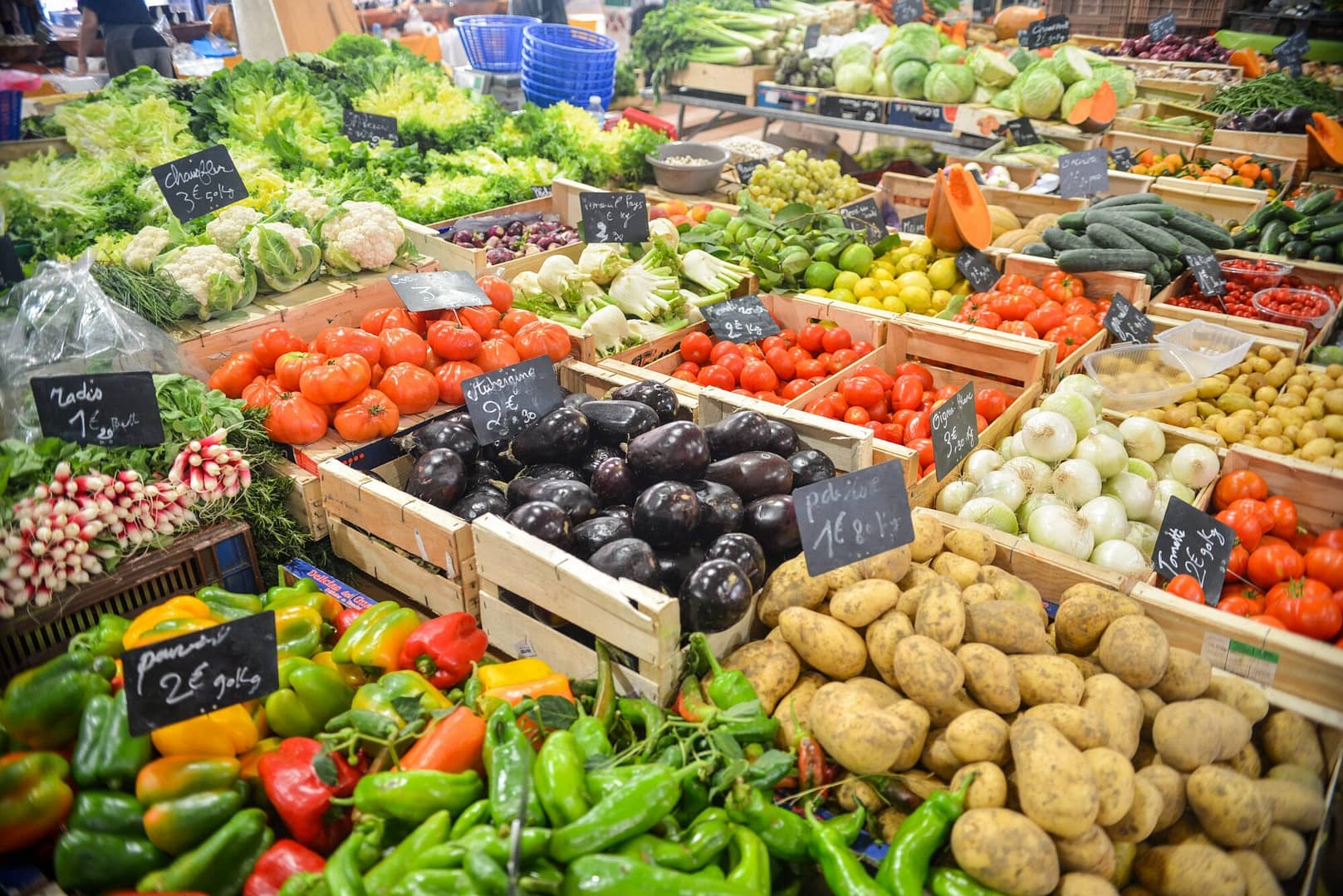
FOODE: Creating sustainable food systems for European Cities
Started in 2020, Metabolic Institute concludes the FoodE project – a project co-created together with other 15 European pilots. The project highlighted the success of an aquaponics greenhouse in Amsterdam Noord for sustainable urban food production, integrating advanced technologies and engaging the community in aquaponics education.
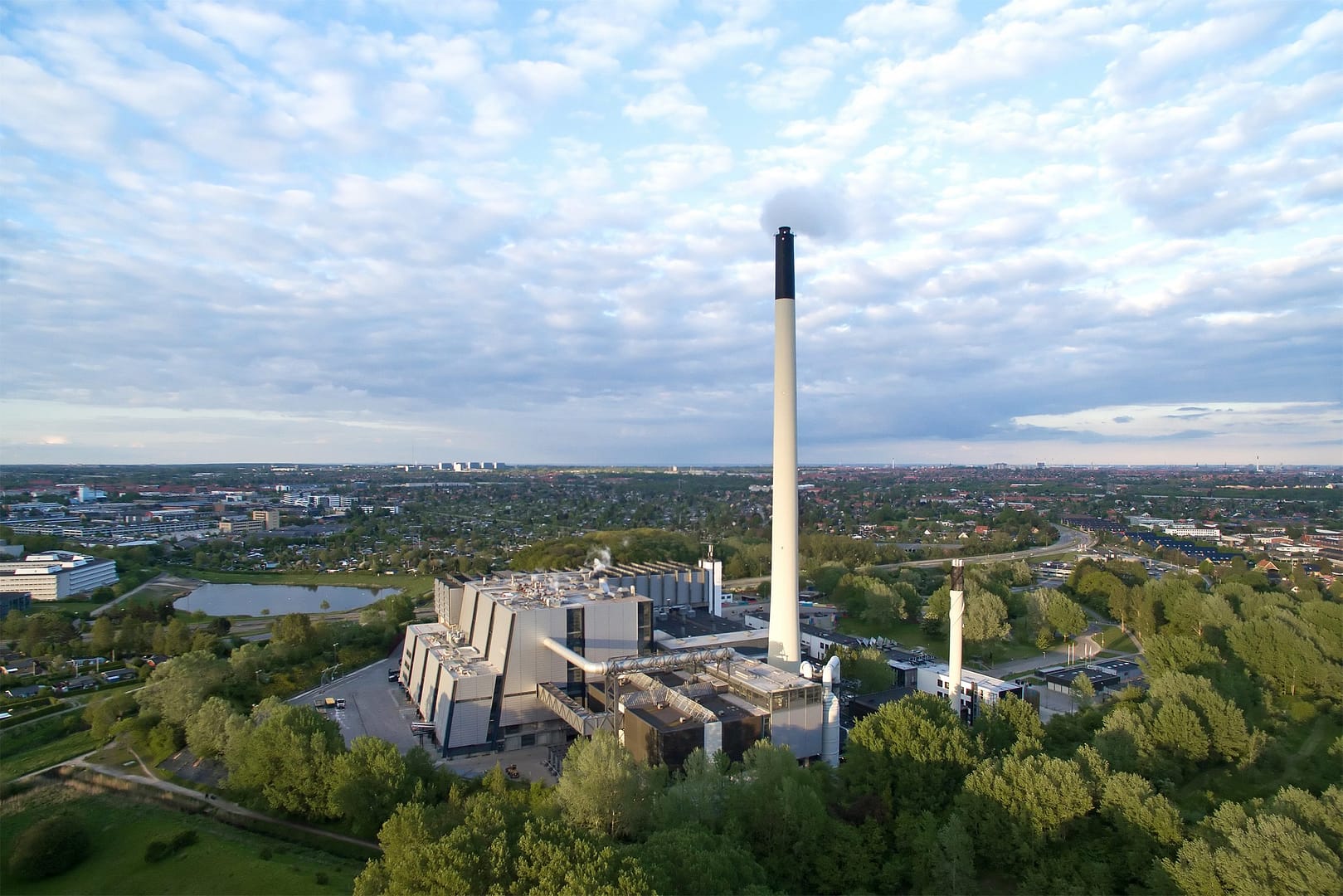
CENTRINNO: Heritage as a catalyst for a new industrial revolution
After four exciting years, Metabolic Institute concludes the EU CENTRINNO project. With nine pilot projects across Europe, the CENTRINNO project has worked to empower circular makers, highlighting the need for comprehensive policy for sustainable urban development that ensures the livelihood of diverse workforces.
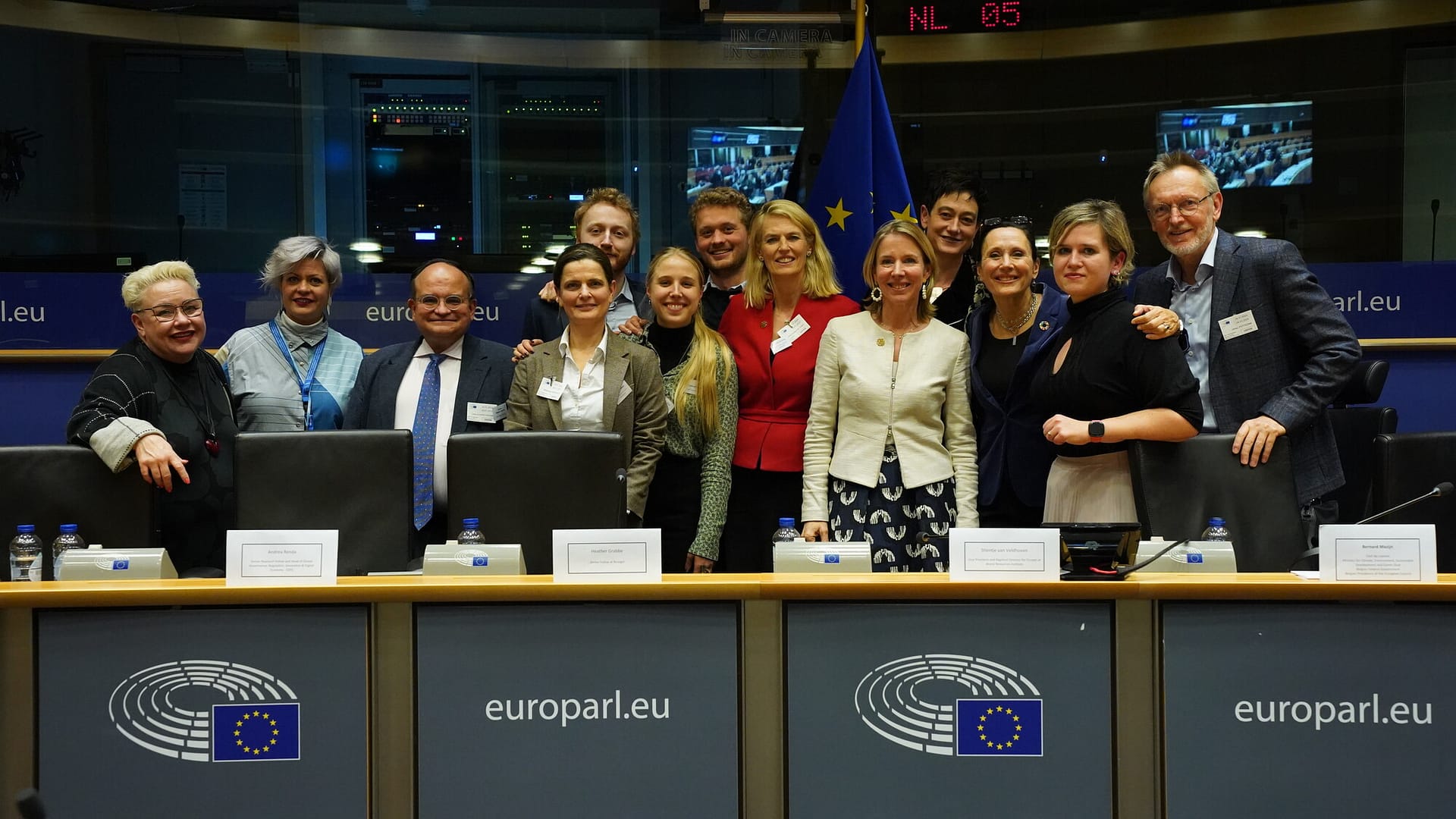
New partnership charts a path for systemic change in the EU
We have launched the Systems Transformation Hub! In an effort to address global crises, the hub seeks to support the European Green Deal through holistic policy guidance and systemic change. It is backed by five leading organizations: Metabolic, EIT Climate-KIC, Systemiq, the Club of Rome, and the World Resources Institute.

Introducing Link, our nature and biodiversity assessment platform
Link, by Metabolic Software, helps you measure your company’s nature-related impacts and risks and identify ways to improve. With automated data collection and a unique prioritization module, Link provides clear direction on where to focus efforts while saving time for the business and the planet.

Metabolic celebrates 10 years of making positive impact
The first decade of tackling systems change in the global food system, in industries, and in urban areas has produced a total of 546 projects (and counting) across 43 countries. Our team now consists of nearly 100 dedicated people from all over the world, plus the additional 30 bright interns we host annually. The next 10 years promise to continue creating a world in which economic activity stays well within planetary boundaries.

REFLOW advances the reuse of materials
Having started in 2019, REFLOW refines a digital tool to help track resource flows in cities and circular strategies based on our material flow and environmental impact assessment of urban plastics, textiles, food, energy, and timber flows. Of the six pilot cities involved, Metabolic Institute helped Amsterdam find ways to reuse textiles, Paris to remanufacture timber at an art fair, and Milan to assess food recovery opportunities at the wholesaling market level.

CIE: financing circular innovation
Metabolic oversees research and development for the Circular Innovation Ecosystem’s two-year pilot program, which will focus on the financial sector’s role in supporting the deployment of circular solutions in Amsterdam’s textiles industry. The results of CIE can become a blueprint for an ecosystem approach to financing circular innovation in Dutch cities and beyond.

European industrial value chains embark on systemic change
The new SoTecIn Factory stimulates systemic ventures that connect entrepreneurs, society, and industries within seven key industries defined by the EU Green Deal: electronics and ICT, batteries and vehicles, packaging, plastics, textiles, construction and buildings, and food, water, and nutrients. The goal is a transformation to low-carbon and circular value chains, thus strengthening the resilience and sustainability of European industry.

Spectral ranks among the Netherlands’ Top 250 Scaleups
A magical year. Spectral becomes a market leader in Smart Energy innovation, and the team grows to 50 people. The Erasmus Centre for Entrepreneurship includes Metabolic’s offshoot energy company in its list of the most agile, innovative, and fast-growing startups in the Netherlands in 2021.

Fresh Ventures Studio launches its first program
Each four-month venture building program delves into the complexities of the food system, matches participants around transformative solutions to environmental challenges within the agricultural sector, and accelerates the resulting startup to an investivable business idea.

The GMI: mapping our economic activity’s impacts on natural resources
The first version of the Global Metabolism Initiative tool is released. This open-access tool maps the impacts of bioeconomy economic activities such as agricultural and forestry The dashboard combines global and national food and forestry datasets with peer-reviewed environmental impact models into one public tool that illustrate the impacts of crop cultivation and forestry production on biodiversity, climate change, land degradation, water risk, and air pollution.

Dayrize goes live
Our team of leading environmental scientists, industrial ecologists, and tech experts develop a product assessment tool that scores consumer products’ impact on the human and natural environment. The award-winning product impact assessment suite provides companies with insights into the impacts of their products in multiple environmental and social dimensions. Brands also get access to detailed reports to identify potential improvements.

Technology for the greater good
The DLT4EU accelerator program ends with a “Demo day” to showcase the ventures applying DLT applications in Amsterdam, London, and Barcelona, along with their real-world solutions to bolster supply chain traceability, ownership transfers, end of life compliance, data management, tracking and tracing, digital identification, and community participation.

Metabolic stimulates circular electronics
Our landscape assessment report outlines a bold, industry-wide vision to shift toward a circular and ethical supply chain for electronics. As we face critical metals scarcity, the Responsible Business Alliance will use its recommendations to galvanize stakeholders to reduce e-waste and ensure products and materials circulate at their highest value for as long as possible.

One step closer to green packaging in Southeast Asia
For WWF Singapore, Metabolic consulting and software introduces a simple, science-based tool that guides businesses in hospitality toward packaging materials with a lower footprint. The Alternative Materials Tool aims to provide context-specific guidance for companies seeking sustainable packaging alternatives to plastic, a major contributor to many environmental issues.

PepsiCo initiates a transformational strategy
A team of consultants from Metabolic, SYSTEMIQ, and Leaders Quest work with senior leadership at PepsiCo to develop PepsiCo Positive, a new framework to measure and reduce food and beverage production’s impact on water, biodiversity, and land degradation across their global business. Completed in 2021, the work provided PepsiCo with key insights which supported them to in setting goals such as net-zero emissions (2040), scaling regenerative agriculture, freshwater preservation, reduction of virgin plastics by 50% (2030), and scaling new business models that require little to no single-use packaging, such as SodaStream.

FoodE fosters sustainable food in European cities
The four-year Horizon 2020 EU-funded project focuses on the development and scaling of context-specific solutions that foster sustainable food and nutrition security in European cities. Through its 15 pilots and the development of a sustainability assessment framework, FoodE will ensure that the most advanced technological solutions available in the EU are maximized for their environmental, social, and economic sustainability. In this context, Metabolic Institute launches the renovation of its own pilot, our aquaponics farms located at De Ceuvel.
DLT4EU: Blockchain technology for the public good
Metabolic Institute, Digital Catapult, and Ideas for Change kickoff DLT4EU, an accelerator program in Amsterdam, London, and Barcelona that puts blockchain and other Distributed Ledger Technology (DLT) to the best use possible within two high-impact sectors: digital citizenship and the burgeoning circular economy. This will pilot DLT applications that can foster real-world solutions with market-ready social ventures.

Metabolic Institute public launch
Our non-profit think tank advances collective intelligence on global sustainability issues. The Institute works at the intersection of society, policy, industry, and academia, connecting them all to scale real-world efforts to build a regenerative economy that does not cross planetary boundaries.
Metabolic moves to a new, larger home
The team keeps growing! Metabolic HQ moves to a former schoolhouse from the 1920s in the Poppies Neighborhood (Klaprozenbuurt) of Amsterdam Noord. De Ceuvel and Schoonschip are our neighbors. New homes, shops, parks, and schools begin to pop up all over this former industrial area a year later.

Metabolic Institute fast tracks regenerative urban landscapes
The Institute goes public and starts big with REFLOW, a project with EU Horizon 2020 to design circular resource flows spanning three years in six European cities: Amsterdam, Berlin, Cluj-Napoca, Milan, Paris, and Vejle. Applying Material Flow Analysis to understand how plastics, textiles, organic waste, and construction materials move through urban landscapes will help develop strategies that reduce waste and lessen the environmental impact of cities.

Plastic Beach Party ranks as a top green project
At number 17 in Latin America for launching a socially-inclusive program, Metabolic Foundation’s plastic recycling efforts enable local designers to clean, prepare, cut, shred, melt, and mold discarded plastic from resorts, households, and beaches into custom products for locals – on a 179km² island with previously no recycling solutions.

An old neighborhood gets a bold, new plan
Metabolic’s circular and inclusive area development plan breathes new life into the H-neighborhood (H-buurt), Amsterdam’s late-60s Modernist highrise flats laid out in a hexagonal grid. Energy efficient strategies demonstrate how sustainability and social development goals can strengthen one another.

Pilot project pioneers a regenerative global food system
Metabolic completes a project with Alpro to develop a science-based approach to the food firm’s almond and soy supply chains, identifying on-the-ground interventions in Alpro’s milk production that respect land, water, nutrients, and biodiversity – not just carbon emission reduction. Along with WWF and a consortium that included Wageningen University, Plans Up and IUCN-NL, the resulting pilot’s assessment and methodologies inspire feasible scientific targets that all companies can implement.

First circular economy strategy for a US city
Metabolic launches a strategy for ‘Circular Charlotte’. Charlotte, North Carolina, is the first city in the United States to make a definitive commitment to working towards a circular economy.

Circular Cities Summer School launched
Metabolic and University of Amsterdam launch the first ‘Circular Cities’ Summer School, a program that brings 35 students from 19 countries across the world to learn about designing sustainable urban ecosystems.

Metabolic’s third venture founded
Identifying a need for software that aids organizations in sustainable decision making, we launched Systemic, our third venture. As a decision-support software developer, its first output is ChemDSS, is an eco-design tool that simplifies the creation of green chemicals.

Strategic ‘Circular Cities’ partnership with AMS Institute launched
Metabolic and AMS Institute launch a joint research program to identify and build new smart solutions for sustainable urban development, using Amsterdam as a ‘living lab’ for circular city research.

Circular tendering guide developed for City of Amsterdam
Our guide to Circular Land Tendering is completed. It serves to help the City of Amsterdam shape its tendering procedures in order to stimulate sustainable urban development.

Pioneering urban mining study released
The results of PUMA (Prospecting the Urban Mines of Amsterdam), our first project with AMS Institute, are released. The study formed the basis of much further research into the material banks to be found within Amsterdam’s urban mines.

WWF Global Food System Analysis published
After extensive research into food systems, Metabolic releases The Global Food System Analysis, commissioned by WWF. The landmark report informs WWF’s food strategy, marking the beginning of a close partnership between Metabolic and WWF.

Metabolic partners with Circular Friesland
A strong partnership between Metabolic and Circular Friesland, a province in the north of the Netherlands, began as we together developed a vision and strategy for circular regional development.

Spectral founded to accelerate the energy transition
Following continued experimentation with decentralized energy and utilities, Metabolic created its first venture. Our first commercial spin-off, Spectral, was founded to accelerate the implementation of sustainable utility systems.

Circular Buiksloterham launched
A roadmap and manifesto for Amsterdam’s first circular neighbourhood is developed. Over 25 local stakeholders committed to the pioneering manifesto’s vision and goals that would guide the area’s development over the coming decades.

Metabolic moves to Noordoogst
The Metabolic offices were once again bursting at the seams. To house a growing team and have more outside space for experimentation, Metabolic HQ moved to Noordoogst, an urban agriculture project on the outskirts of Amsterdam North.

Metabolic Foundation creates Brenchie’s Lab
As part of continued work on the Caribbean island of Aruba, the Metabolic Foundation team set up Brenchie’s Lab, a publicly accessible makerspace equipped with digital design and fabrication tools for open collaboration and self-guided learning.

Metabolic Foundation sets sail to Aruba
After a military coup in Thailand, Metabolic Foundation moved its operations to Aruba to continue its work with local communities in the Caribbean.
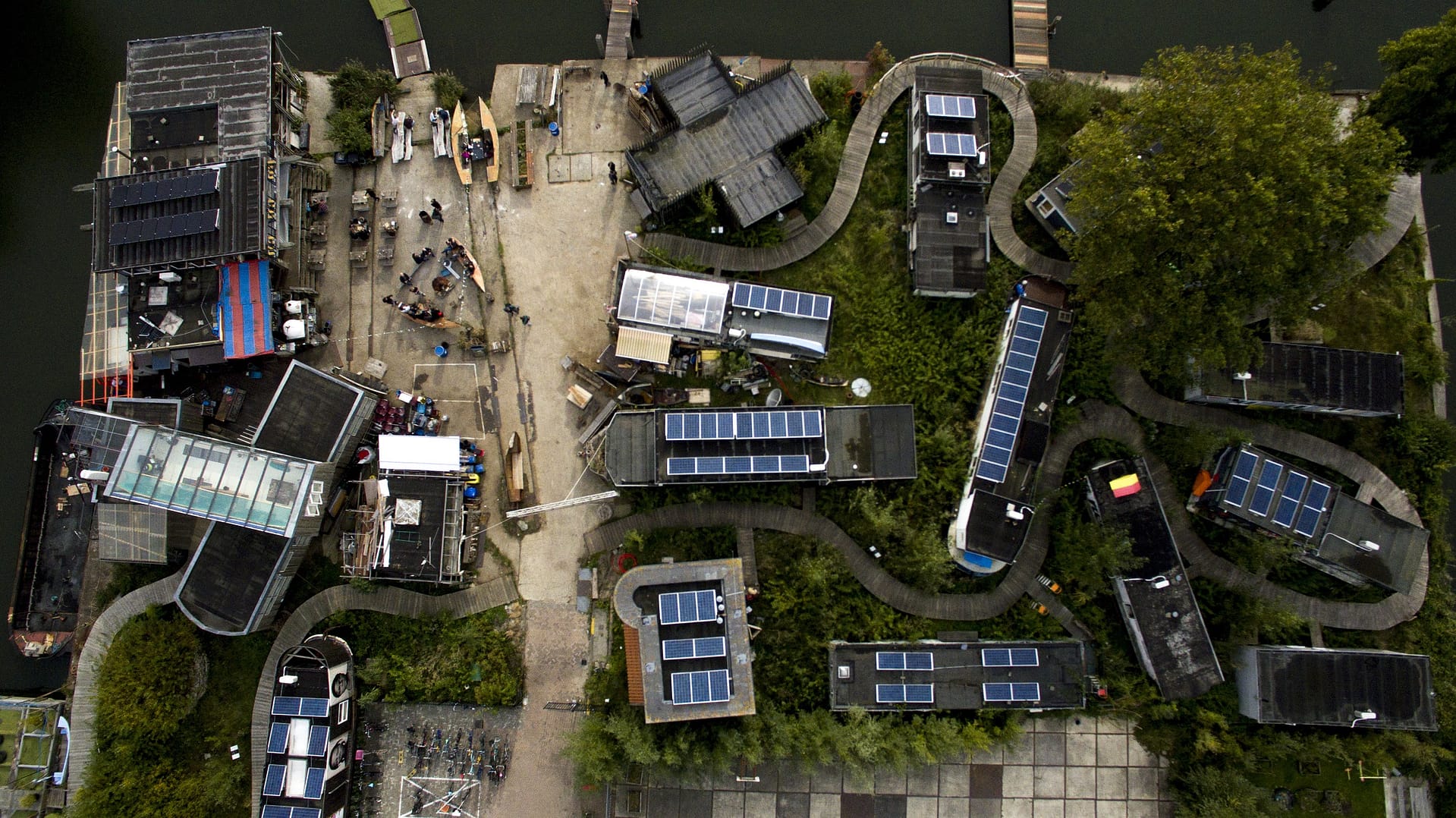
De Ceuvel opens its doors!
The much-awaited opening of De Ceuvel arrived, showing the world how an abandoned, polluted shipyard can be transformed into an innovative office park and cleantech showcase for sustainability initiatives.

Piloting micro-utility services at festivals
After 3 months of building compost toilets and energy trailers, it was time to bring them into the real world. The summer of 2014 became our debut season for serving festivals with decentralized systems for energy, sanitation, and pop-up buildings. They were a great success, and laid the foundation for a new spin-off organization.

Experimenting with energy systems
Seeing the necessity for mobile, decentralized solutions, the team started experimenting with energy systems, building our first mobile solar energy station using an old horse trailer, recycled lead batteries, and solar panels.

Meanwhile, in Thailand…
Metabolic Foundation was created to help build resilient developing communities through democratization of knowledge and technology. The team had already been working to bring open-source cleantech to riverside neighborhoods in Thailand for a year.

A workshop at New Energy Docks
To put sustainable innovations into practice, we needed a workshop. So we rented a space at New Energy Docks – a community of green startups based in Amsterdam North – and got right to it.
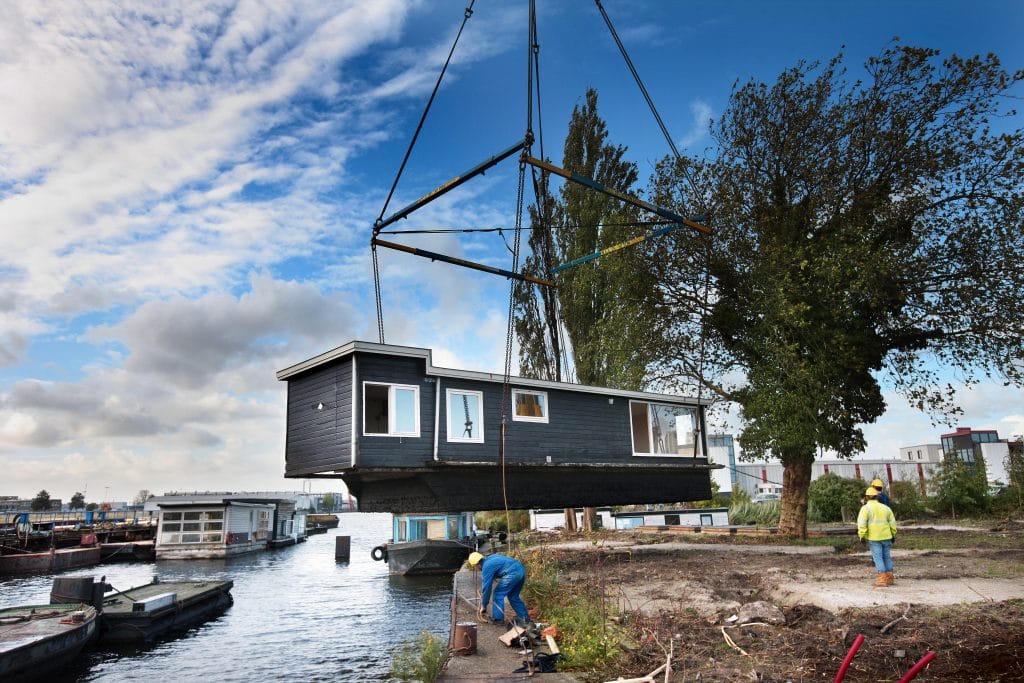
Construction of De Ceuvel begins
Bringing the cleantech playground to life. To transform a derelict and polluted shipyard in Amsterdam North, the team got to work preparing the site and relocating the houseboats which would become sustainable workspaces for the future community.

Setting up Metabolic HQ in Amsterdam
As the Metabolic team grew and more ambitious projects hit the launchpad, the team decided to move Metabolic HQ to Amsterdam – a global frontrunner on sustainability and the circular economy.

Taking action: The Cleantech Playground
Core to Metabolic’s mission was an urge to push the boundaries of conventional consulting and start turning ideas, concepts, and dust-gathering reports into real, functioning models. With this, we began our first iconic project – The Cleantech Playground – a blueprint for new urban development in two locations in Amsterdam North: a former shipyard turned office park called De Ceuvel, and a floating residential development named Schoonschip. (Render: space&matter).

Metabolic founded in Rotterdam, the Netherlands
In 2012, Eva Gladek founded an organization that she believed could tackle some of the most urgent and critical sustainability challenges facing society. An industrial ecologist by training, Eva’s work focused on what we can learn from natural systems, and the power of viewing cities, companies, and sectors through a ‘Metabolic’ lens.
